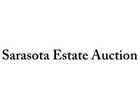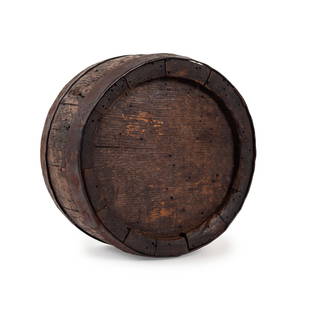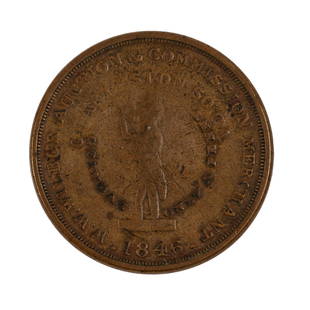
Important Revolutionary War Letter re: Lexington
Similar Sale History
View More Items in Militaria & War MemorabiliaRelated Militaria & War Memorabilia
More Items in American Revolutionary Period Militaria & War Memorabilia
View MoreRecommended Collectibles
View More











Item Details
Description
Important Revolutionary War Letter re: Lexington This is a significant letter written by the grandson of one of the militia who was at the battle on Lexington Green on the very first day of the Revolutionary War, and it provides great insight into who was involved and what was happening on that first day. The letter was written by the grandson of the Sergeant in Captain Parker’s company at the battle of Lexington, and it brings everything together on that fateful day. We can’t write just a summary of the letter, but need to print it out in its entirety to be appreciated. A few highlights, and then the letter. Sergeant Munroe’s grandson was writing from Lexington on the eve of the first day of battle in Lexington, but 77 years later. He was asking about funds for the monument on the green where the battle started, and he mentions people who were intimately involved in the battle - Jonas Clark, John Hancock, Samuel Adams, among others - and his descriptions put you right there, when the battle was first starting. He adds details that not many knew, and they provide background and context to the battle and the circumstances that make this such an important moment in American history. The letter reads: “Lexington Apr 18th 1852 I learn by the newspapers the people of N York will celebrate the ever memorable 19th of Apl [April] 75 in a suitable manner to keep in remberance [remembrance] the important events of the day. Thinking it might be acceptable to the Committe [Committee] and those that may meet together on the 19th, I have visited the only survivor of that little band of resolute men that faced the regulars, and obtained from him (Jona Harrington) his autograph, also abijah Harringtons, with such sentiments they suggested, which I have the pleasure to present to the people of N York hoping the signatures and sentiments and incidents related will be as highly appreciated there as they are here. The Citizens of Lexington obtained from the Legislature years ago an act incorporating the Lexington Monument association for the purpose of erecting a Monument on the green of such higth [height] and beauty as shall seem to demand of the whole people of the United States. Jona Harrington named above is President of the association. I wish you would take a vote on the 19th when the people are together in N York to assertain [ascertain] wether [whether] they are in favour [favor] of renewing the old land mark in Lexington the spot is here they all started from in their Liberties and government. If they should vote in favour we shall be pleased to hear it. If President Taylor had lived to visit us we contemplated to have moved in the matter but we were disappointed by his sudden death. We hope to have some early opportunity to make a beginning by a donation from some the many Patriotic Americans that are living under the protection and blessings left to them by such men as Clark, Hancock, and Adams. The Town records are full of resolutions and votes of Patriotism and devotion in the great cause (Revolution) they were drawn and offered by that unyielding and determined Patriot Rev. Jonas Clark. he it was that gave council to Hancock and Adams they made Clarks house their home while they were attending the event in Concord. one of the many incidents connected with the work of the 19th is one related by the Clarks as follows - on the evng [evening] of the 18th a person called at a house in West Cambridge and enquired of the woman that opens the door if she could inform him where Clark Tavern was. the Lady told him that she did not know of any tavern kept by Clark. he said he believed one Hancock and Adams board there. on his turning to leave the wind blew open his cloak. She espied a British uniform her Yankee wit and quickness of thought impeled [impelled] her to believe he was there for no good purpose. She steps out and says she did reccolect [recollect] hearing something about that house, and if he would walk a few steps with her she would show him the way to it. She pointed to a road leading to Woburn and put him on the back track. He was found in the woods afterwards. it is said he related the story himself. Another incident - a gentleman from Concord was at the Mullikins in Lexington (courting a girl as the old folks say) he left there early in the morng [morning], and overtook the British officers in Lincoln a few miles from Concord as soon as he saw them, he leaped his horse over the stone wall and rode round through the woods and got by them and rode on in haste to Concord and gave the alarm, the British officers halted, soon three Americans came up to them they immediately made prisoners of the Americans. the others found out by the Americans the news had gone ahead of them so they returnd [returned] towards Lexington with their prisoners untill [until] near the village when they cut the girth and bridles on the horses of the Americans and left them and rode through the village with the greatest speed possible, as the alarm had been given and the bell was ringing. My Grandfather was the Seargent [Sergeant] in Capt. Parkers compy [company] on the 19th my Father was but 15 years of age and not old enough to be enroled [enrolled] He stood nearby and saw and heard all untill the Americans left the Common he related the accident that happened to a British officer while riding to his father's house. a pile of logs lay in the front of the house as the horse of the officer was going fast, he stumbled over the logs and threw the rider. the horse ran and was taken on the Lincoln Road by a man by the name of Locke, he told him afterwards. In the afternoon a British officer that had been wounded was carried into Buckmans Tavern up into a chamber and died there. Jona Harrington says the regulars halted opposite his father's house while resting some of them went into the house and got what they could find to eat and drink and took his father's Books many of them valuable he was studying Latin they carried them into the road and set fire to them and burned them all. Brother Jonathan sends his compliments to ulcle [uncle] Sam and wants to know if he will build his monument - if he will the people will pay the Scott.” That ends the letter. The person who wrote the letter did not sign his name, but says that his grandfather was a sergeant in Captain Parker’s company at the battle on the green, and the only person acting in that capacity was William Munroe, a Scot of long descent. We are unable to trace the lineage of William Munroe to find out who his grandson was - there is a long line of Munroes in the Lexington area - but that can be done later on. Ebenezer Locke of Woburn fought at Concord and Lexington on April 19, 1775, and as rumor had it in the early 1800’s, he was the one who fired the first shot made famous by Ralph Waldo Emerson in his poem “Concord Hymn”. We are not sure how accurate that is, but it is one of those stories of the Revolution. The letter also mentions Jonathan Harrington, and there were nine Harringtons on Lexington Green on April 19, 1775. Daniel Harrington was a member of Captain John Parker’s company of Minute Men who were present when the company skirmished with the British at the Common that day, which was the very first day of the Revolutionary War. Abijah Harrington was Daniel’s brother - we are not sure if he was there, but he is mentioned in the letter here - and Jonathan Harrington was Daniel’s cousin and a young fifer at the Green on the 19th, and the last American survivor of the Minute Men who fought in Lexington that day; he died in 1854, two years after this letter was written. The Lexington Monument was actually erected on July 4, 1799 and was the first Revolutionary monument in the country. It was funded by the Commonwealth of Massachusetts at a cost of $400, and it has a marble tablet on it to honor the eight Americans who were killed there on April 19; the original tablet was made of slate and replaced with marble in 1835. We are not sure if the letter was written to ask the people of New York to contribute and help maintain or upgrade the historical marker in Lexington, but this letter ties it all together. It names the important participants - Reverend Jonas Clark, John Hancock and Samuel Adams, Captain Parker - and the important places - Buckman’s Tavern and the Lexington Common, the Lincoln road - and this is where it all started, the beginning of the American Revolution and the road to independence. The letter is four-sided, with a fold down the middle, and measures 9 1/2 by about 15 in. wide, with light creases, a couple of brown spots and a light thin on the third page, about six lines down, and actually in very good condition for its age and importance.#85, #1593
Buyer's Premium
- 26%
Important Revolutionary War Letter re: Lexington
Estimate $200 - $400
11 bidders are watching this item.
Shipping & Pickup Options
Item located in SARASOTA, FL, usOffers In-House Shipping
Local Pickup Available
Payment
Accepts seamless payments through LiveAuctioneers

TOP
























![Revolutionary War Letter & Enlistment Document : Autograph note signed by Lieutenant Jonas Parker. Chelmsford, [Massachusetts], 18 February 1777. 1 page. With: Autograph letter signed by John Bettey, to Andrew Bettey of Chelmsford, MA. Camp on Rhode](https://p1.liveauctioneers.com/7226/294713/156486479_1_x.jpg?height=310&quality=70&version=1688306668)
![[CIVIL WAR] Letter re: Execution of the Murderer of USCT Officer: This may be a lesson to them of our power. To execute justice. Autograph letter signed by Charles L. Taylor, Co. K, 16th Connecticut Infantry. Head Quarters, Getty's Div., 24 October 1863. 4 pages, 8v](https://p1.liveauctioneers.com/7226/305222/164413146_1_x.jpg?height=310&quality=70&version=1700181797)












![[CiVIL WAR] Candid Letter re: Prostitutes: Autograph letter signed by William Hawkins to Uncle Bobby. Philadelphia, Pennsylvania, 26 May 1864. 3 pages, 8vo. A ribald letter sent from a man named William Hawkins to his Uncle Bobby during the Ci](https://p1.liveauctioneers.com/7226/325455/175168996_1_x.jpg?height=310&quality=70&version=1712370394)


![[REVOLUTIONARY WAR] 1783 Treasury Receipt re: Robert Morris: Autograph document signed by John Lawrence. Hartford, Connecticut, 31 March 1783. 1 page, 8 1/4 x 7 5/8 in. Docketed and signed by Captain Jabez Perkins to verso. A scarce treasury receipt document fr](https://p1.liveauctioneers.com/7226/322253/173251483_1_x.jpg?height=310&quality=70&version=1710004847)
![[Daguerreotype] Revolutionary War & War of 1812 Hero: Quarter plate daguerreotype. Thermoplastic case affixed with a silver plaque engraved "Genl. Mooers, Plattsburgh, NY." c. 1855 daguerreotype of an early painted portrait of General Benjamin Mooers (17](https://p1.liveauctioneers.com/7226/322253/173251484_1_x.jpg?height=310&quality=70&version=1710004847)



![Feud w/ Stonewall Jackson, Important Confederate Letter: Autograph letter signed by Colonel Samuel "Sam" Vance Fulkerson (1822-1862). Winchester, [Virginia], 9 December 1861. 3 pages, 4to, 7 3/4 x 10 in., on blue paper. With original yellow envelope with Wi](https://p1.liveauctioneers.com/7226/325455/175169128_1_x.jpg?height=310&quality=70&version=1712370394)
![(1865) Distress re: Fall of the Confederacy: Autograph letter signed by Agnes E. Patteson (b. 1835), to her cousin Jim. Hickory Hill, [Hinds County, Mississippi], 9 July 1865. 3 pages, 4to, 7 5/8 x 9 3/4 in. A fascinating letter written in the i](https://p1.liveauctioneers.com/7226/325455/175169172_1_x.jpg?height=310&quality=70&version=1712370394)





![[FURNITURE]. Revolutionary War Period British Officer's Por...: [FURNITURE]. Revolutionary War Period British Officer's Portable Campaign Chest. [England, ca. 1770s]. Although not dated, this piece was acquired in upstate New York in the late 1960s and attributed](https://p1.liveauctioneers.com/928/328184/176813337_1_x.jpg?height=310&quality=70&version=1714673807)





![American Revolutionary War Period Mahogany Countertop Dress...: American Revolutionary War Period Mahogany Countertop Dressing Mirror. [American, ca. 1780]. Original countertop dressing mirror with original wooden stand and adjustable supports. Approximately 25 x](https://p1.liveauctioneers.com/928/328184/176813368_1_x.jpg?height=310&quality=70&version=1714496988)
















![George Washington Signed Discharge: Partly printed discharge document signed by George Washington, as Commander in Chief of the Armies of the United States. Newburgh, [New York], 4 January 1783. 1 page, ## x ## in. Undersigned by Washin](https://p1.liveauctioneers.com/7226/322253/173251475_1_x.jpg?height=310&quality=70&version=1710004847)

